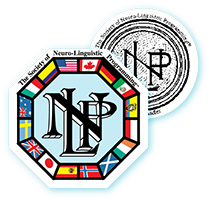Suffering is Optional
“Suffering is optional”, is what I answered, to the question “what is the purpose of suffering?” posed by one of the Rabbi’s in a group discussion. It shocked a few people. And one person exclaimed: “Pam Castillo, It isn’t optional! How do we explain difficulties like 9/11, or, to use the most used example, the Holocaust? How is suffering optional? Do mean if a person makes himself delusional, he won’t suffer?”
MY ANSWER:
In a way, your analogy of “delusional” is close, but not exactly what I’m talking about…
1. “Suffering”, and “Optional” are only words. We choose how each of them make us feel. For example, one persons “suffering” seems to pale in comparison to another. Teenagers claim to be “suffering” under the house rules of their parents. So words can generate feelings, sometimes accurate, sometimes exaggerated. This is just one point to this whole puzzle I’m talking about, in the concept of “suffering” and it is optional. Words. Words are funny things. If we use them intentionally for our benefit, we can get better results. Using the NLP Meta Model and Milton Model will be a great place to start to get more intentional about your desired outcomes.
2. A dog feels pain, but has NOT learned to suffer. Suffering is a distinctly human condition, and humans have a higher consciousness than dogs do for sure. AND….. if one gets very curious about replicating what a dog does, then the UNlearning of suffering might be a good, and useful thing to learn. There are ways to unlearn how to suffer, after all, people successfully learned to suffer to begin with, so anything learned, can be UNlearn with NLP. Unfortunately, the techniques are not taught in school, or at home, or in academia much, and most folks haven’t got a clue of HOW to stay out of fear of the boogeyman let alone the kind of required THINKING, STRATEGY, BELIEF BUILDING, and SELF COMMUNICATION through language to stay out of ”suffering”.
3. Terrible atrocities like the ones mentioned are a reality; that is UNdeniable for sure. It’s HOW, we as humans, respond both internally and externally to atrocities and painful conditions that is largely up to how well our minds are trained. For example, I have helped many people in hospitals, and nursing homes, who “suffered” with things like severe burns, back problems, and other terrible things, to learn NOT process, or feel pain when at times, even maximum doses of morphine were no help. The mind is powerful. Unfortunately, we are not ALL taught to maximize what it can do and how to use it early in life. Next, some people in solitary confinement for years, and years, have kept joyful. One of them, by planting fields of crops in his mind every year, making it as real as could be in his mind, even smelling the scent of wheat in his jail cell. Delusional? Sure. Useful? VERY. This by the way, is a true story Dr. Bandler told, and reminds me of the incarceration scenes of the characters in the book, The Count of Monte Cristo. Next, some people, like the sages, and yogi’s, could see reality of course, and saw terrible situations taking place in the world, YET… their language is aimed at avoiding leading people to “suffering”, and they patently reject such mental states with every fibre of their being. So in this respect, I say “suffering is optional” – it’s just more complicated with so much of what culture points to. Culture uses suffering in it’s language, and beliefs because they have no other possibilities in their minds. It is, however, quite possible, and many people endeavor to learn more, and more to get closer, and closer to UNlearning how to “suffer”.
4. In his classic book, Man’s Search for Meaning, Victor Frankl, examined people
in the holocaust who somehow overcame the mental and physical state of “suffering” and uplifted themselves, perhaps into the spiritual area, or some other area, where the energy is just different, and into “meaning”. Frankl believed, and taught that every condition has a positive meaning, and can be, at least be neutral, even joyful. Joy and suffering are processed in totally different areas of the brain. Learn to navigate your brain, and you can master just about anything, if you do things happily. Do enough things happily, and you can lay down at night and feel you had a pretty happy day, regardless of circumstances. It IS possible, and I continue to work on it, and I’m better than some, not as good as others. Can you or anyone get there? YES. Everyone can. Some more easily than others. Some beliefs have to be unraveled, and reframed, some presuppositions tossed out so that more possibilities become opened, and HOPE is maintained. Without HOPE, all is lost. Why is it that some folks have different pain tolerances? Again, the mind is a powerful thing. Why is it that schizophrenics in one personality are severely diabetic, but when they change into a different personality they exhibit no signs, or symptoms of diabetes? Is there a mental component? You bet there is. A BIG one. And we can all do better at navigating our mind with NLP, of that I am sure. “Between stimulus and response, there is a space. In that space is our power to choose our response. In our response lies our growth, and our freedom.” ~Viktor E. Frankl.
5. If you learn to amp up strong beliefs in what can be accomplished, and learn to go from doubt to certainty, while expecting the outcome you want, you will be in a better state. You can stop using the verb, “to suffer” by doing and expressing things differently. What will be happening when you hold such strong beliefs, and keep yourself away from the “illusion” of “suffering”? Maybe we could have uniquely powerful great “delusions” as you call them, that we find meaning, and joy in every breath no matter the situation. What will be happening, indeed?
6. NLP teaches you to identify, and choose your response, by using your neurology. “The brain is fit for purpose” ~ Dr. Bandler. The only limitation is that people REmember, and REact, instead of THINK. Dr. Bandler says people are in pain NOT because the world is lacking resources; the world is rich with resources. People are in pain because their representation of the world is impoverished. Think. Think deeper, wider, and faster, so you go farther, and further into what you DO want. Manage your mind; it matters.
7. From these positions, I stand by my statement that “suffering is optional.” I endeavor to n0t allow myself to “suffer” or sit in fear, or anger, and instead, move closer, and closer to “Truth” and “Love”. I’m better at it now then I was 20 years ago; heck, I’m better at it today, than I was yesterday, and for that, I’m grateful. I plan to keep going with this strategy and building upon it, as it has served me well. Serve you well, and it will.
Pam Castillo is a Society of NLP Trainer at Clarity Institute in Los Angeles who has pioneered the application of NLP in lasting loving relationships in her Bashert programs described here. Pam is also the author of52 NLP Skill Builders, for consistently building and improving upon your NLP comprehension, and use. And you can read Pam’s blog at Pamtastic! Blog
© Pam Castillo 2021








